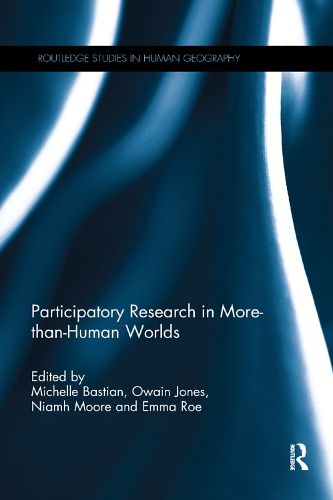Readings Newsletter
Become a Readings Member to make your shopping experience even easier.
Sign in or sign up for free!
You’re not far away from qualifying for FREE standard shipping within Australia
You’ve qualified for FREE standard shipping within Australia
The cart is loading…






Socio-environmental crises are currently transforming the conditions for life on this planet, from climate change, to resource depletion, biodiversity loss and long-term pollutants. The vast scale of these changes, affecting land, sea and air have prompted calls for the ‘ecologicalisation’ of knowledge.
This book adopts a much needed ‘more-than-human’ framework to grasp these complexities and challenges. It contains multidisciplinary insights and diverse methodological approaches to question how to revise, reshape and invent methods in order to work with non-humans in participatory ways. The book offers a framework for thinking critically about the promises and potentialities of participation from within a more-than-human paradigm, and opens up trajectories for its future development. It will be of interest to those working in the environmental humanities, animal studies, science and technology studies, ecology, and anthropology.
$9.00 standard shipping within Australia
FREE standard shipping within Australia for orders over $100.00
Express & International shipping calculated at checkout
Socio-environmental crises are currently transforming the conditions for life on this planet, from climate change, to resource depletion, biodiversity loss and long-term pollutants. The vast scale of these changes, affecting land, sea and air have prompted calls for the ‘ecologicalisation’ of knowledge.
This book adopts a much needed ‘more-than-human’ framework to grasp these complexities and challenges. It contains multidisciplinary insights and diverse methodological approaches to question how to revise, reshape and invent methods in order to work with non-humans in participatory ways. The book offers a framework for thinking critically about the promises and potentialities of participation from within a more-than-human paradigm, and opens up trajectories for its future development. It will be of interest to those working in the environmental humanities, animal studies, science and technology studies, ecology, and anthropology.